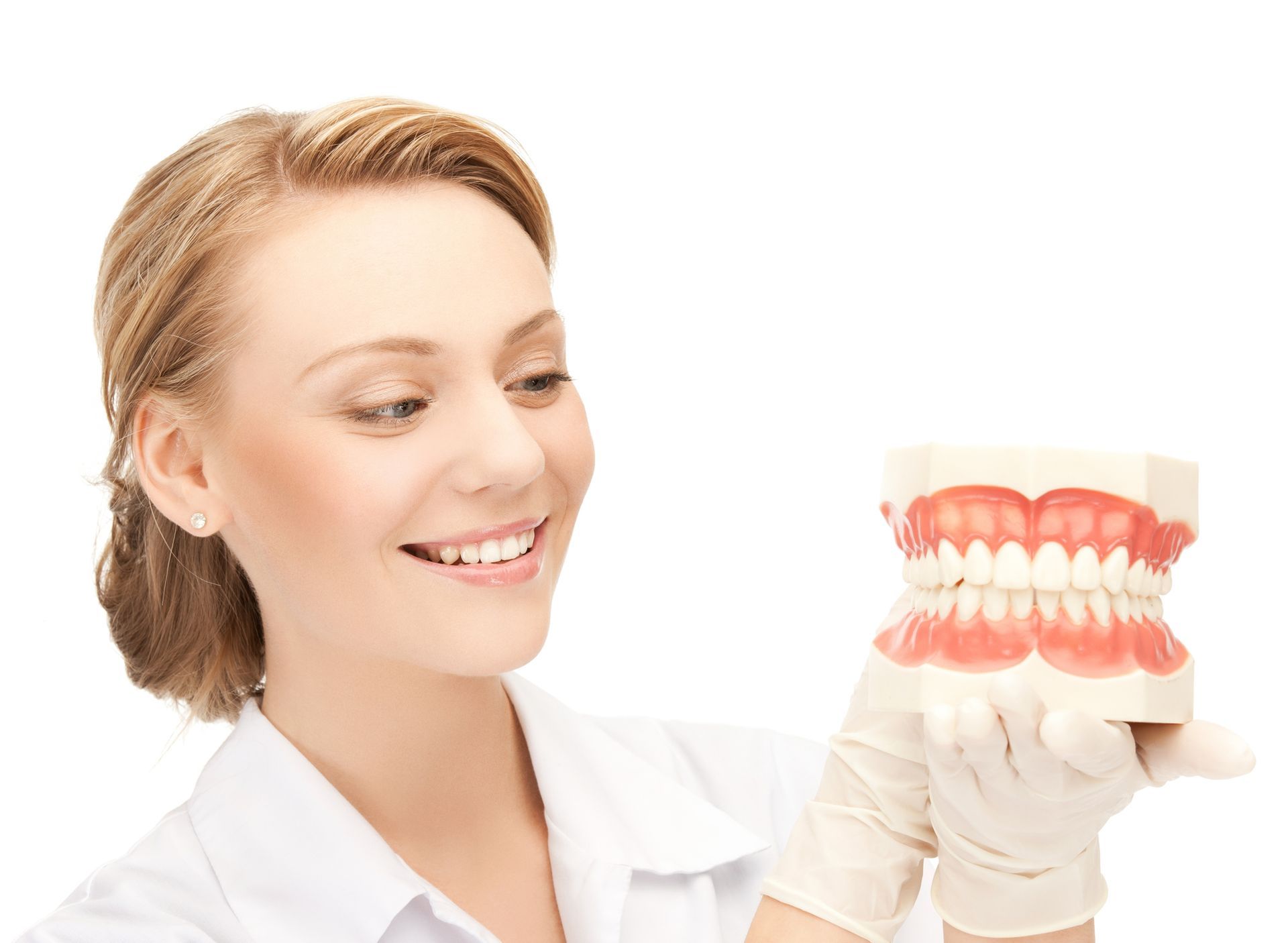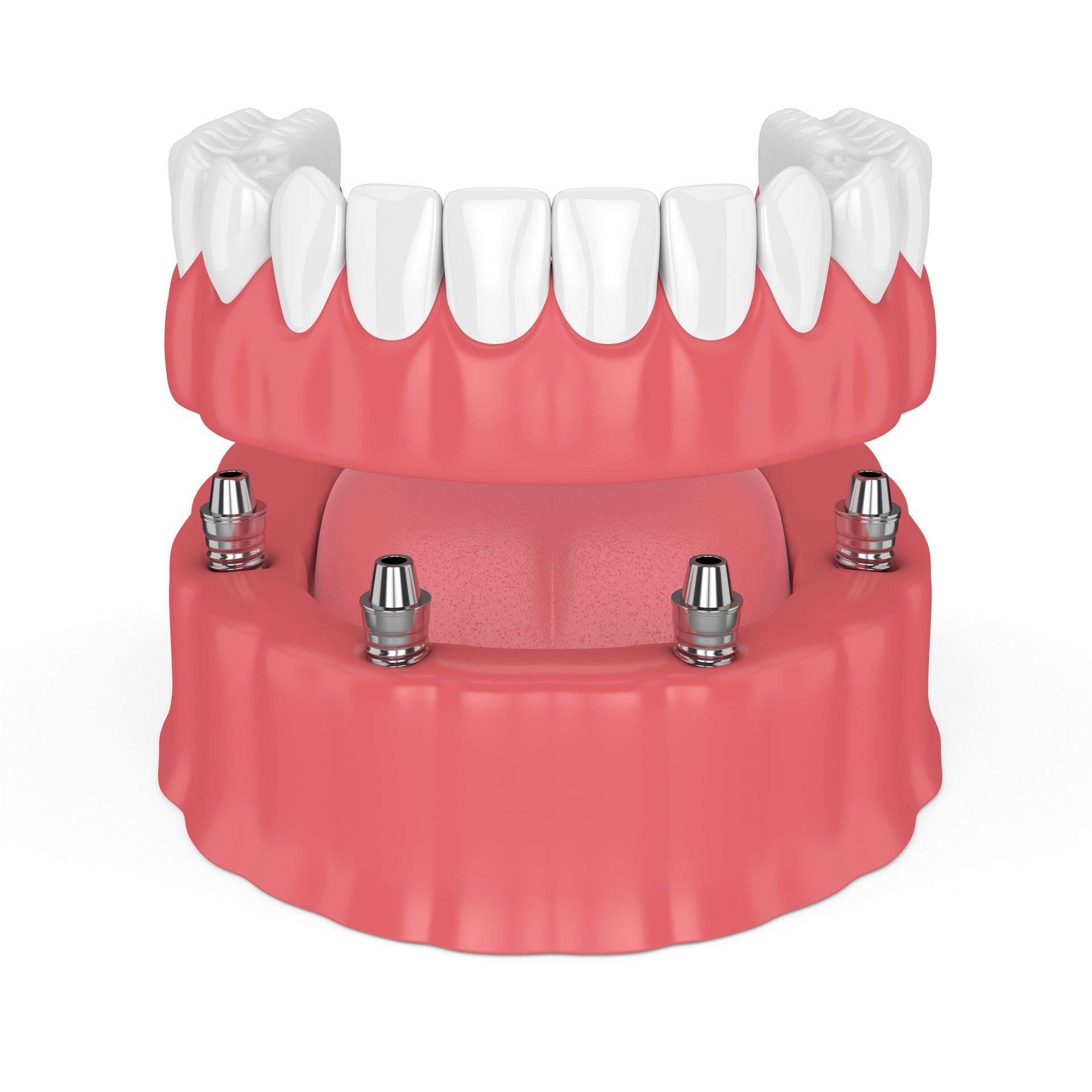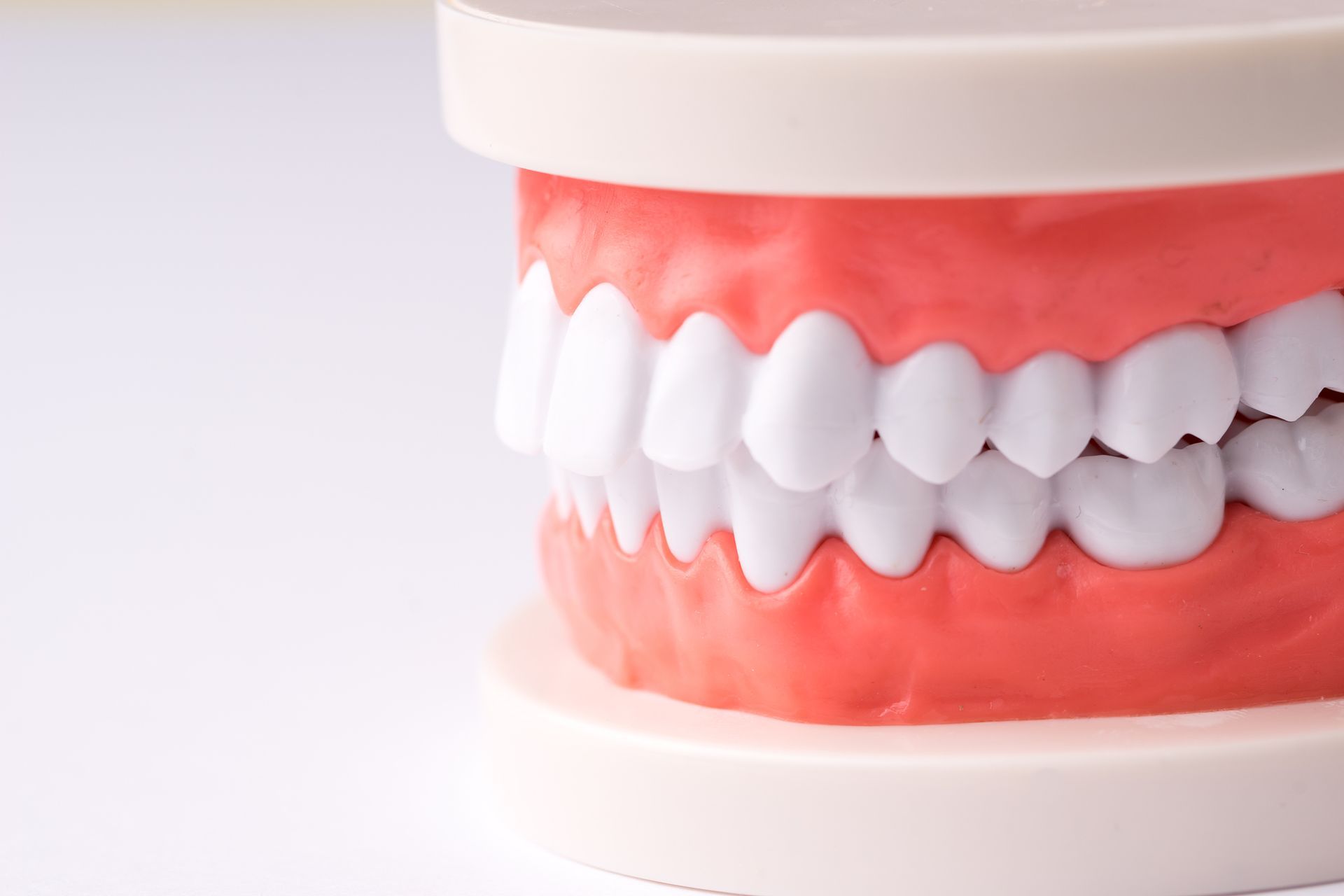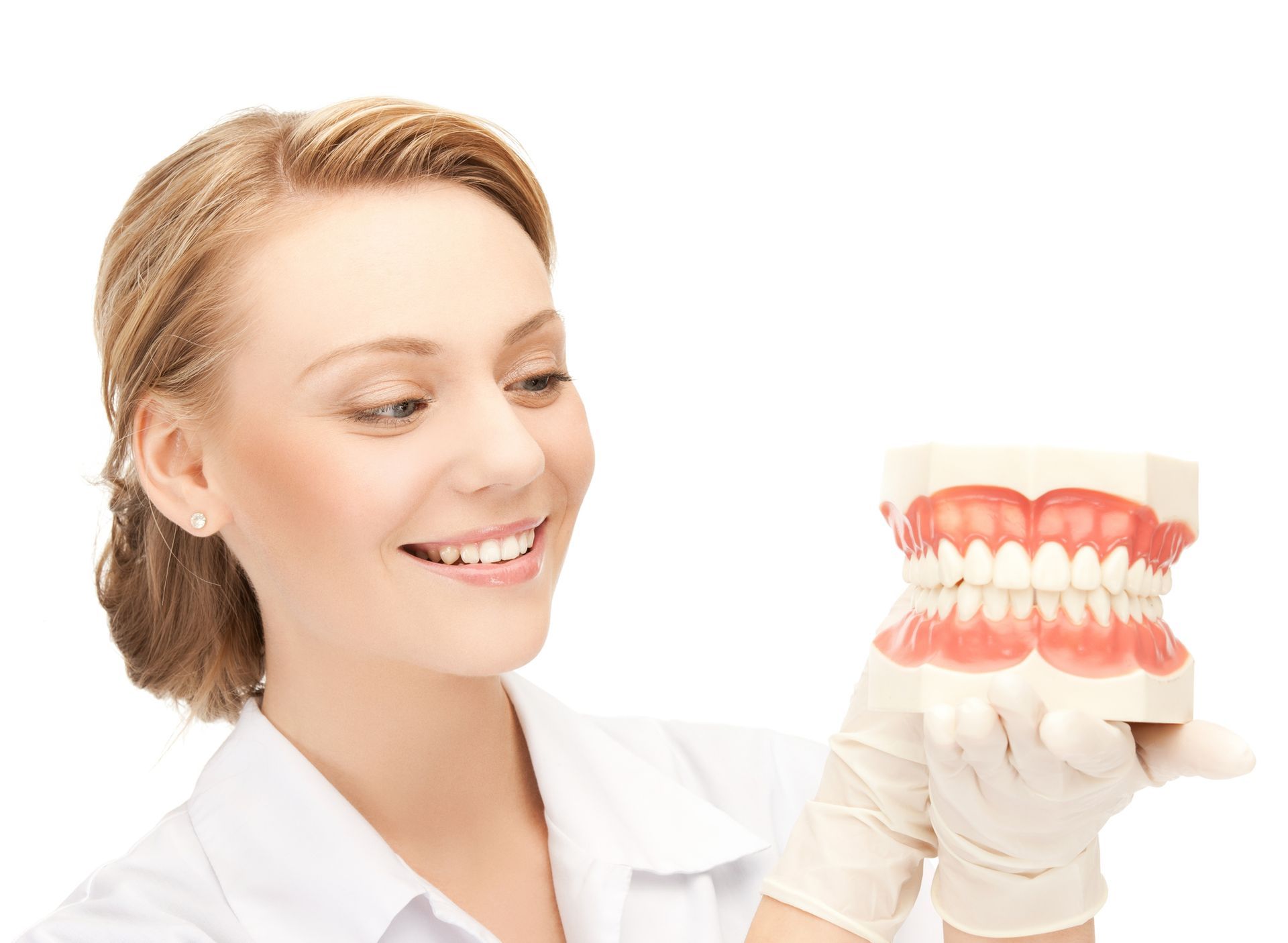Eating Well with Dentures: Tips for Enjoying Your Favorite Foods
Adjusting to eating with dentures can take some time, but with practice and patience, it becomes easier and more comfortable. Start with soft foods and gradually introduce firmer options.
Cut food into small pieces to make chewing easier. Avoid sticky or hard foods that can cause denture movement. Rinse your mouth and dentures after meals. Consider using denture adhesive for extra stability.
Practice speaking and chewing to build confidence. Attend follow-up appointments with your dentist for adjustments. With time, you'll adapt to eating with dentures and enjoy your favorite meals with confidence.
Contact Us
We will get back to you as soon as possible.
Please try again later.
Key Takeaways
- Start with soft foods and gradually introduce firmer options.
- Cut food into small pieces to make chewing easier.
- Avoid sticky or hard foods that can cause denture movement.
- Rinse your mouth and dentures after meals.
- Consider using denture adhesive for extra stability.
Denture-Friendly Foods: What to Include in Your Diet
When you have dentures, it's important to choose foods that are gentle on your dentures and easy to chew. Opt for soft fruits like bananas and peaches. Cooked vegetables such as carrots and peas are also good choices. Select tender meats like fish and chicken. Eggs, pasta, and rice are soft and easy to chew. Include dairy products like yogurt and soft cheeses for essential nutrients. Soups and stews with well-cooked vegetables and soft meats are nourishing options. Choose softer bread varieties like whole-grain or white bread. Remember to cut your food into smaller pieces and chew slowly to ensure ease of eating and good oral health.
Choosing denture-friendly foods will ensure that you can maintain a balanced diet while enjoying your meals comfortably. By incorporating these foods into your diet, you can continue to nourish your body and maintain good oral health. Remember, it's important to take small bites, chew slowly, and rinse your mouth and dentures after meals to keep everything clean and comfortable. With these dietary choices and proper oral hygiene, you can confidently embrace your new dentures and continue to enjoy a variety of delicious foods.
Enhancing Chewing Efficiency with Dentures
When it comes to eating with dentures, enhancing chewing efficiency is key to enjoying a comfortable dining experience. By implementing a few simple techniques, you can ensure that your dentures stay securely in place while you savor your favorite foods. Here are some tips to enhance your chewing efficiency with dentures:
- Chew on both sides of your mouth: Chewing on both sides of your mouth simultaneously helps distribute pressure evenly, providing better stability for your dentures. This can prevent any slippage or discomfort while you eat.
- Chew slowly and thoroughly: Take your time while chewing to avoid strain and ensure that the food is thoroughly broken down. Chewing slowly also allows your saliva to mix with the food, making it easier to swallow.
- Choose your foods wisely: Avoid sticky or chewy foods that can dislodge your dentures. Opt for softer options that are easier to chew, such as cooked vegetables, tender meats, and soft bread varieties.
- Cut your food into small pieces: By cutting your food into small, manageable pieces, you can make chewing more efficient and comfortable. It also reduces the risk of denture movement and discomfort.
By following these tips, you can enhance your chewing efficiency with dentures and enjoy a more comfortable eating experience. Remember to also ensure that your dentures fit properly and attend regular check-ups with your denture specialist for any necessary adjustments.
Tips for a Comfortable Dining Experience with Dentures
Adjusting to eating with dentures can present certain challenges, but with the right strategies, you can enjoy a comfortable dining experience. Here are some tips to help you make the most of your meals:
- Choose Soft Foods: Opt for softer foods that are gentle on your dentures and easier to chew. This includes soft fruits like bananas and peaches, cooked vegetables such as carrots and peas, and tender meats like fish and chicken.
- Cut Food into Smaller Pieces: To prevent denture movement and improve chewing efficiency, cut your food into smaller, bite-sized pieces. This will make it easier to chew and help maintain stability while eating.
- Avoid Sticky and Tough Foods: Sticky and tough foods can cause discomfort and may dislodge your dentures. Avoid foods like caramel, chewy candies, and tough cuts of meat that can be challenging to chew. Opt for moist foods like soups or stews for added comfort.
- Chew on Both Sides of Your Mouth: Chewing on both sides of your mouth simultaneously distributes pressure evenly and provides balance and stability. This can help prevent denture movement and improve your overall dining experience.
- Be Mindful of Temperature: Hot and cold foods can affect the fit of your dentures. Be cautious when consuming these foods to prevent discomfort or potential damage to your dentures.
- Stay Hydrated: Drinking plenty of water not only keeps you hydrated but also helps rinse away food particles. This can contribute to better oral hygiene and prevent irritation.
- Avoid Hard Biting or Using Dentures as Tools: To maintain the integrity of your dentures, avoid habits like biting on hard objects or using your dentures to open packages. These actions can lead to damage or breakage of your dentures.
By following these tips, you can have a comfortable dining experience with dentures and enjoy a wide range of foods with confidence. Remember, it may take some time to adjust, but with practice and patience, eating with dentures will become second nature.
Overcoming Common Eating Difficulties with Dentures
Eating with dentures can present some challenges, but with the right strategies, you can overcome common difficulties and enjoy your meals with confidence. Here are some tips to help you navigate eating with dentures:
- Maintain a Soft Food Diet: Start by incorporating soft foods into your diet, such as mashed potatoes, cooked vegetables, and soft fruits. These foods are easier to chew and pose less risk of dislodging your dentures. As you become more comfortable, gradually introduce firmer foods into your meals.
- Be Mindful of Food Texture: Avoid sticky or tough foods that can be challenging to chew with dentures. Opt for tender meats, well-cooked pasta, and softer bread varieties. Cutting your food into smaller, bite-sized pieces can also make it easier to handle and chew.
- Practice Good Denture Care: Clean your dentures regularly to remove food particles and prevent plaque buildup. Soak them overnight to keep them moist and in shape. Use denture adhesive if needed for extra stability. Regular dental check-ups will ensure your dentures fit properly and function optimally.
- Start with a soft food diet
- Avoid sticky or tough foods
- Cut food into smaller, bite-sized pieces
- Clean dentures regularly
- Soak dentures overnight
- Use denture adhesive if needed
- Attend regular dental check-ups
By following these tips and maintaining good oral hygiene, you can overcome common eating difficulties and enjoy a satisfying dining experience with your dentures. Remember to be patient with yourself as you adapt to eating with dentures, and don't hesitate to reach out to your dental specialist if you have any concerns.
Essential Denture Care Practices
Proper denture care is crucial for maintaining good oral health and ensuring the longevity of your dentures. By following a few essential care practices, you can keep your dentures clean, comfortable, and functional.
- Daily Cleaning: To keep your dentures free from plaque and bacteria, it's important to clean them daily. Use a soft-bristled denture brush and mild soap or denture cleaner to gently brush your dentures. Be sure to brush all surfaces, including the gums, tongue, and palate, to remove any food particles or plaque buildup. Rinse your dentures thoroughly after cleaning to remove any remaining soap or cleaner.
- Gentle Handling: Handle your dentures with care to avoid any damage or breakage. When cleaning or removing your dentures, do so over a soft surface or basin filled with water to cushion against any accidental drops. Avoid using sharp or abrasive tools to clean your dentures, as these can scratch or damage the material. If your dentures become loose or damaged, seek professional assistance for denture repairs.
- Soaking and Storage: Soak your dentures overnight to keep them moist and maintain their shape. Dentures can become dry if left outside of the mouth, leading to discomfort and potential warping. Use a denture soaking solution or plain water to soak your dentures overnight. Remember to rinse them thoroughly before wearing them again in the morning. When not wearing your dentures, store them in a clean container with water or a denture soaking solution to prevent them from drying out.
- Regular Dental Check-ups: Regular visits to your dentist are essential for ensuring the fit and function of your dentures. Dentists can monitor the condition of your dentures, make adjustments if necessary, and address any oral health issues. Dental check-ups also provide an opportunity for professional cleaning, helping to maintain the overall health of your mouth. Be sure to schedule regular appointments with your dentist to keep your dentures in optimal condition.
By following these essential denture care practices, you can keep your dentures clean, comfortable, and functioning well. Remember to clean your dentures daily, handle them with care, soak them overnight, and visit your dentist regularly. Taking care of your dentures will help you maintain good oral health and enjoy a confident smile.
Making Eating with Dentures Second Nature
Adjusting to eating with dentures may take time, but with practice, it will become second nature. Take things slowly at first and bite and chew carefully to avoid discomfort. Start with softer foods and gradually expand your diet. Cut your food into small pieces to make chewing easier. Avoid hard, sticky, or chewy foods that can damage your dentures. Consider using denture adhesive if needed for extra stability. Over time, you'll be able to eat, speak, and laugh freely without worrying about your missing teeth.
To make the transition to eating with dentures easier, here are some tips:
- Start with soft foods such as cooked vegetables, mashed potatoes, or yogurt. As you become more comfortable, gradually introduce firmer options.
- Cut your food into small, manageable pieces to make chewing easier and prevent denture movement.
- Avoid sticky or hard foods that can cause your dentures to shift or become dislodged.
- If you find that your dentures feel loose, consider using denture adhesive to provide extra stability.
- Practice speaking and chewing with your dentures to build confidence and improve your ability to eat comfortably.
With time and patience, you'll adapt to eating with dentures and be able to enjoy a wide variety of foods with confidence.
Consult Your Dentures with Denture Clinics of Tulsa
Adjusting to eating with dentures may initially have some challenges, but with time and practice, it becomes easier and more comfortable. Start with soft foods, cut your food into smaller pieces, and chew slowly and carefully. Avoid hard, sticky, or chewy foods that can cause discomfort or damage to your dentures.
Consider using denture adhesive for extra stability. Regular dental check-ups are important for maintaining the fit and function of your dentures. With patience and persistence, you can enjoy a wide range of foods with your dentures and continue to have a satisfying dining experience.
Take the first step towards a brighter, more vibrant life.
Contact us today to
schedule an appointment with our skilled denturist. Your new smile awaits. Contact Tulsa Teeth at (208) 226-7721 and rediscover the joy of a beautiful, functional smile.
You might also like
Denture Clinics Of Tulsa Blog & News
Book a Service Today
We will get back to you as soon as possible
Please try again later
Flash Those Beautiful Smiles!
Let our professional dentists helps your fill in the gaps inside your mouth. Don't be afraid to invest on your teeth, boost your confident with a smile.

Affordable Dentures & Implants from Tulsa's #1 Rated Denture Clinics! Call Today For an Appointment.
Navigation
Services
Disclaimer: www.tulsateeth.com is a free service to assist users in connecting with
local healthcare providers. www.emergencydentalboise.com is not a doctor’s office nor a doctor referral service nor is it a substitute for visiting a doctor. Nothing contained on or offered through this site should be
construed as medical advice and should not be relied upon for medical diagnosis or treatment.
www.tulsateeth.com does not endorse or recommend any participating Third-Party Healthcare Providers
that pay to participate in this advertising. All persons depicted in a photo or video are actors or
models and not doctors listed on www.tulsateeth.com.
All Rights Reserved | www.emergencydentalboise.com




